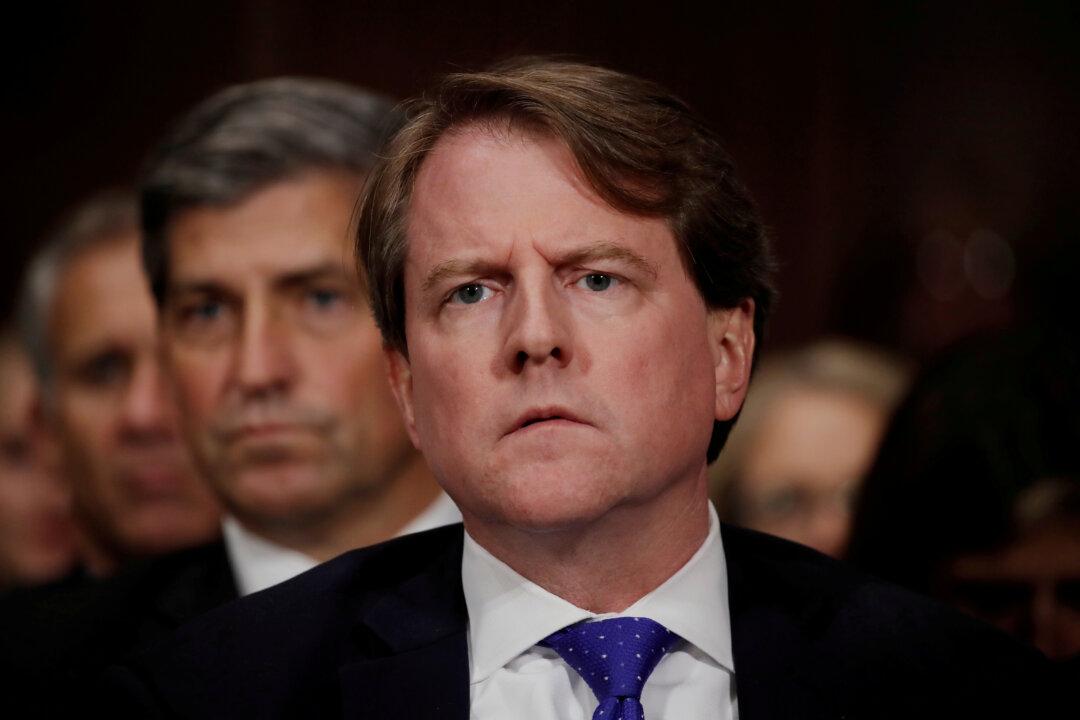The Justice Department (DOJ) has pushed back on assertions made by House lawyers that President Donald Trump’s lawyers had contradicted the DOJ’s position during the Senate impeachment trial in an ongoing case seeking White House counsel Don McGahn’s testimony.
House lawyers told a panel of judges at the U.S. Court of Appeals for the District of Columbia Circuit in a two-page letter (pdf) on Thursday, that a written response by the president and remarks made by his lawyer Jay Sekulow during the impeachment trial run counter to one of the central arguments the DOJ has used to prevent the enforcement of a subpoena demanding that McGahn testify before the House Judiciary Committee.




